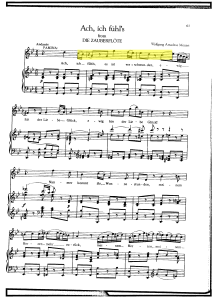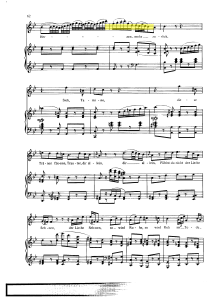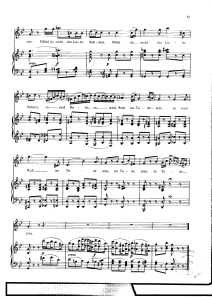This week I polished the post performance feedback as well as created an endpoint for a user to upload a piece of sheet music, running the sheet music conversion during the upload.
For the post performance feedback, I extended it such that the feedback would work if the sheet music was multiple pages. I did this by maintaining a global beat counter in each element of the position list. I also made the highlighting more accurate. Before the y-position of the highlighting was based off the y-position of the corresponding note. Now the y-position is based on the y-position of the staff lines. This helps since previously if the y-positions of the start and end note were similar the box around that area would be very thin which is no longer an issue. I also updated how I do the highlighting from a simple rectangle around the area to a proper highlight . This was done by adding a weighted yellow numpy array to the specified area of the image.
Example of changes(Note in the test I ran for this two areas were out of sync)



For the upload it takes in a file from a request which is then saved locally. A process running audiveris is then run on the file to produce the mxl and omr files which are then moved to a designated folder. These files are then unzipped and deleted.
For validation I have mostly been testing these components with Postman to simulate API requests. I’ve also created a short python script to simulate the input from the timing algorithm for the post performance feedback section. So far the tests have been generally successful with both the post performance and file upload however most of my tests have been happy case tests and more tests need to be done to see how the system handles failure and unexpected inputs.
Is your progress on schedule or behind? If you are behind, what actions will be taken to catch up to the project schedule?
The project is on track for the interim demo this upcoming week.
What deliverables do you hope to complete in the next week?
Time will largely be spent working towards the demo and then I will continue work on the UI.






